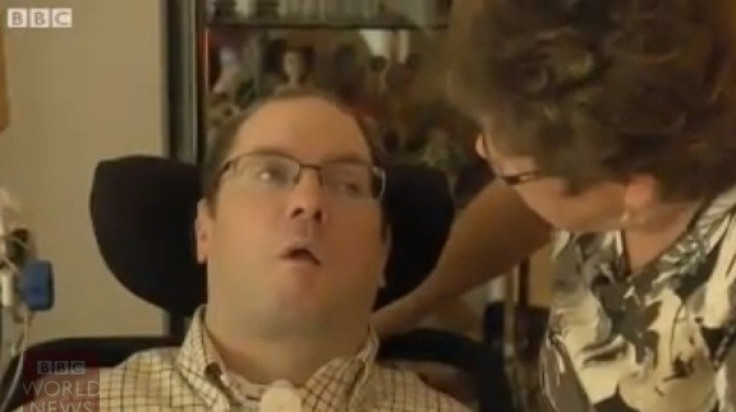Panorama’s Mind Reader: Inside the Mind of Vegetative-State Patients

Panorama will examine how efforts are being made to help patients in vegetative states to communicate with the outside world.
The Mind Reader: Unlocking My Voice is about a group of severely brain injured patients and those people who are trying to help them communicate.
For over a year, Panorama follows minimally conscious patients in Britain and Canada.
Professor Adrian Owen, research leader based at the University of Western Ontario in Canada and the University of Cambridge, has previously shown that a fifth of vegetative patients are actually conscious.
A vegetative state is normally caused by a brain injury. Health professionals have to be extremely careful in diagnosing the condition as there is always the possibility that the patient may have awareness but cannot express it.
A condition called 'locked-in syndrome' means a person is fully aware of their surroundings but are unable to move or speak. In 2009 it emerged that Rom Houbens, a man from Belgium, was misdiagnosed as being in a persistent vegetative state after a car crash.
Twenty three years later it was found that he was paralysed and had been awake the whole time, unable to tell doctors what he was suffering from.
If a person under the age of 20 is considered to be in a vegetative state, they have a one-in-five chance of recovery. If they are over 40, the chance of recovering is extremely small.
People who do recover are likely to have life-long physical and mental disabilities because of the damage to their brain.
Researchers featured in the documentary used functional magnetic resonance imaging (fMRI) brain scans to detect hidden awareness, allowing patients to communicate.
Fergus Walsh, medical correspondent at the BBC, saw the moment when a patient thought to be vegetative for over 10 years, starts to answer questions while inside a brain scanner.
Other patients were shown to be capable of reason and memory, which can be communicated through the power of thought.
Implications of the documentary are vast; for the families of patients, medical staff and scientists alike.
Scott Routley, from Canada, is one of the patients trialing the pioneering technique to communicate with vegetative patients.
He was severely brain-damaged after a car crash 12 years ago. During the scan he was able to tell doctors that he was not in pain.
Routley answered the questions by either imagining he was walking around his home or playing tennis; each scenario activated different areas of the brain so the medical team were able to see that he was saying either yes or no.
Owen said: Scott has been able to show he has a conscious, thinking mind. We have scanned him several times and his pattern of brain activity shows he is clearly choosing to answer our questions. We believe he knows who and where he is.
"Asking a patient something important to them has been our aim for many years. In future we could ask what we could do to improve their quality of life. It could be simple things like the entertainment we provide or the times of day they are washed and fed."
Neurologist professor Bryan Young, from University Hospital in London, Ontario, has cared for Routley for the last decade. He said: "He had the clinical picture of a typical vegetative patient - no emotional response, no fixation or following with his eyes.
"He didn't have any spontaneous movements that looked meaningful and I was quite impressed and amazed that he was able to show these cognitive responses with fMRI."
The Mind Reader: Unlocking My Voice is on BBC One at 10.35pm Tuesday November 13.
© Copyright IBTimes 2024. All rights reserved.






